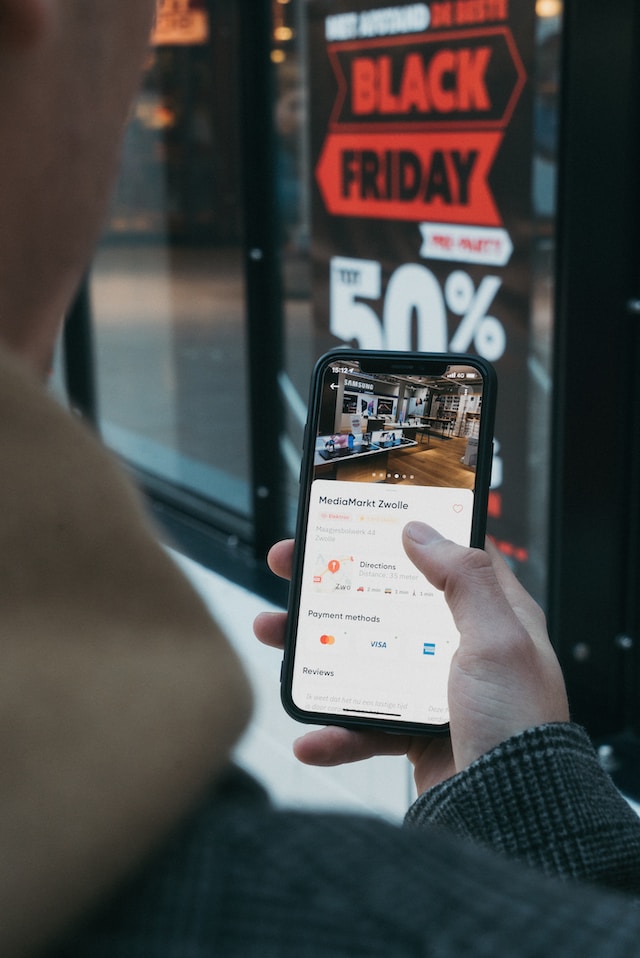What is Retail Media and Why is it a Controversial Topic?
You have probably heard of Retail Media before – but what exactly is it?
Retail Media is an important part of commerce today. Targeted advertising can increase retailers’ visibility in the market, which in turn leads to increased sales. Retail Media also allows for better customer loyalty, as advertising can be tailored specifically to the customer’s needs. A major advantage of Retail Media is the ability to target audiences specifically. By using data, retailers can analyze exactly which products are particularly attractive to which target group. This makes advertising more effective and cost-efficient at the same time. Another advantage of Retail Media is the ability to advertise through various channels, such as on your own website or on social media platforms. This increases the reach and the target group is reached at various touchpoints. However, a careful planning and implementation of Retail Media is necessary to successfully take advantage of these benefits. Costs, complexity, and data protection concerns should also be taken into account. Only with a good Retail Media strategy can retailers really benefit from the advantages and increase the visibility of their products, increase sales, and build strong customer loyalty.
Therefore, retailers and brands must ensure that they comply with data protection regulations and adequately protect customer data. Despite these challenges, Retail Media is indispensable for modern commerce due to its advantages. Careful planning and implementation of Retail Media campaigns can help retailers and brands take their business to the next level and create long-term customer loyalty.
For brands, Retail Media offers a unique opportunity to target their audiences specifically and thus achieve higher conversion rates and better customer loyalty. By working closely with retailers, brands can align their advertising and products precisely with the needs and interests of the target group. This also includes targeted advertising campaigns on the retailer’s website or directly in-store. This results in higher conversion rates, as the target group is specifically addressed and thus directly motivated to make a purchase. Retail Media also contributes to better customer loyalty, as the target group is addressed in a personal way, creating a connection to the brand. Also, targeted tracking and targeting through data-based models are possible to further optimize brand perception among the target audience. If brands are willing to overcome the challenges within Retail Media, a big step towards successful targeting of audiences and higher revenues can be achieved.
One of the biggest challenges for brands in the field of Retail Media is their dependence on retailers. After all, it is the retailers who own most of the sales platforms and thus offer the most advertising space. When brands run their advertising campaigns through Retail Media, they are therefore dependent on cooperation with the retailers. This means that they often have only limited opportunities to design and control their advertising content. Retailers usually determine which advertising is displayed on their platforms and how it is displayed. This limits the control of brands over their advertising content and can thus also impair their brand building. Another challenge is that brands often do not know where their advertising is being displayed and what environment it will have. This can result in advertising ending up in inappropriate contexts and thus damaging the brand image. Despite these challenges, many brands use Retail Media because it still offers them the opportunity to target specific audiences and increase their conversion rates.
When it comes to successful Retail Media strategies, there are some big names that are repeatedly mentioned. Amazon Advertising is one of these names. With enormous reach and a variety of advertising formats, Amazon is an important partner for many retailers and brands. Amazon is also known for collecting customer data and providing advertisers with insights into the purchasing behavior of their target audience. Another huge brand that relies on Retail Media is Zalando with its Zalando Media Solutions offering. With a large number of users and a wealth of data on shopping habits, Zalando Media Solutions has a strong position in the market. Zalando also offers its advertising clients full insight into the success of their campaigns and allows them to make adjustments quickly and easily. Another example is the Otto Group Media, which specializes in programmatic advertising and targets a broad audience. By personalizing advertising messages and using dynamic ads, Otto Group Media was able to increase its conversion rate and improve customer loyalty. Retail Media strategies can be beneficial for both retailers and brands, but they require thorough planning and implementation to be successful.
If you are a retailer or brand operating in the e-commerce space, you cannot avoid dealing with the topic of Retail Media. The benefits for your business are obvious: you increase your visibility, increase your sales, and bind customers even more strongly to you. However, as with any marketing strategy, there are also challenges to be overcome. Costs, complexity, and data protection concerns are some points that you need to weigh carefully to determine whether the benefits to your business justify the costs. As a brand, you also benefit from targeted audience targeting, higher conversion rates, and better customer loyalty. However, you are also dependent on the retailers on which you want to advertise. In addition, you have limited control over your advertising content, which can be a problem for some brands. Despite the challenges, there are numerous successful case studies, as Amazon Advertising, Zalando Media Solutions, and Otto Group Media show. Retail Media is an important part of modern commerce and will continue to play a major role in the future. However, careful planning and implementation are essential to be successful.
You are probably wondering how Retail Media will develop in the future and what new trends can be expected. An important factor will be the ongoing digitalization. More and more consumers are shopping online and also using the digital advertising formats of retailers and brands. Another important development is the personalization of advertising. By collecting customer data, retailers and brands can better cater to the needs and interests of individual customers. The integration of AI technologies such as machine learning and predictive analytics will also play an important role in placing even more targeted and effective advertising. Another trend is the increased use of social media channels to reach and engage with customers. However, the challenges in implementing these trends should not be underestimated. Concerns about data protection and dependence on large platforms such as Amazon or Facebook can lead to limitations. Ultimately, it will be important to conduct smart and careful planning and to adapt to the needs of customers and current developments in the market in order to be successful in the long term.

